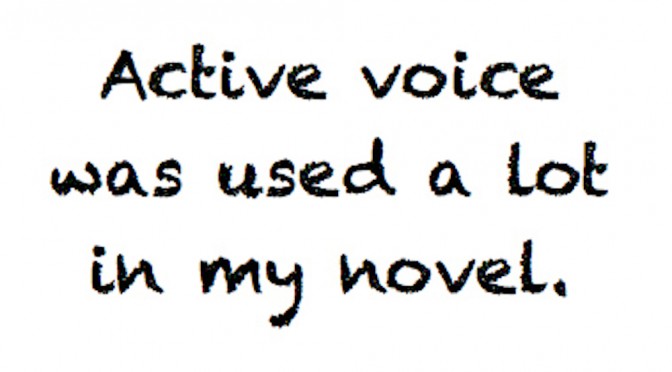Habits of a lifetime
I have discovered that because of my technical background I use a lot of passive voice as opposed to active voice.I was trained to write
‘The salt was dissolved in water at and the solution was gently brought to the boil.
or ‘The metal was cut into strips and melted in the furnace’
This is Passive voice and is typical of accepted technical presentation.
An active voice alternative would be ‘The water took the salt into solution and the scientist then applied heat to the container until the solution came to the boil.’
or ” The shearing device cut the metal into strips before the furnace melted it.
I think the above examples show why passive voice is popular in the scientific community and to be fair the opponents of the use of passive voice do admit that if we don’t know or don’t care about the object passive voice is often acceptable.
Wading through mud?
Critics of the application of passive voice to fiction say that it antagonises readers who feel that they are “Wading through Mud” and that the alternative active voice is “stimulating”.
These same critics ( there are several,use google to find them) say that a sure indicator of the existence of passive writing is the use of the verb “to be’ That is “is”,”was”,etcetera.
In practice, in English, it is not simple. Although “He kicked the ball” is active voice in the past tense, “He was kicking the ball’ is also active voice but in the past progressive tense!
After a long discussion with my editor we have agreed that the key issue is not the existence of the verb to be, but that object of a sentence should precede the verb. I remained unconvinced as in my opinion there are other issues.
Which works best?
Consider the following passive paragraph.
‘In a flurry of exitement , the new information was put in front of Superintendent James. He quickly realised the implications were far reaching and revised every one of his opinions.’
And then the active alternative.
‘Inspector James reviewed the new information, which had been placed in front of him in a flurry of excitement. He quickly realised that because of it’s far reaching implications he must revise every one of his opinions.’
The information presented is the same but I believe the passive version is actually easier both to read and comprehend than the active version.
My editor responded by saying that as long as it is not overdone, passive voice is occasionally acceptable.
I have accepted this advice.
